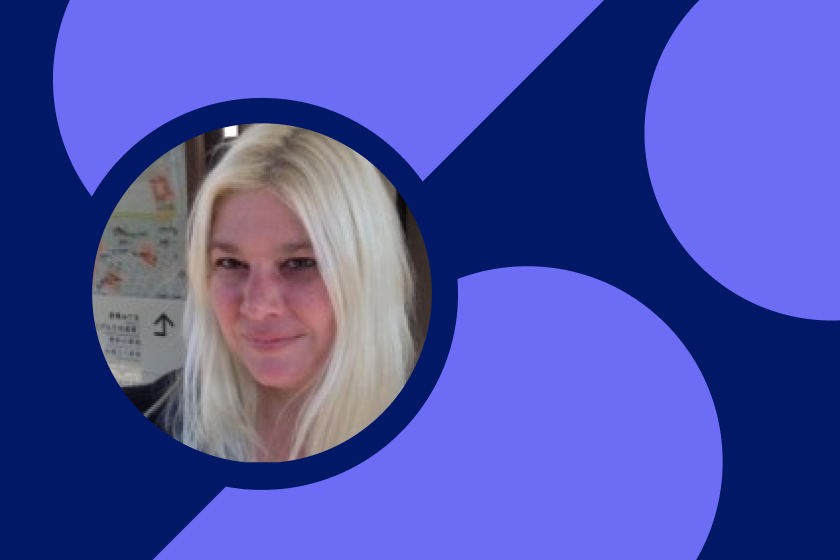#WeAreArity Wednesday: Patti Rodgers Read article


In 1999, I had the opportunity to travel to Mexico on a business trip for two weeks. It was my first time in the country and my first opportunity to work as a member of a globally dispersed team. As my inbound flight lingered a couple of thousand feet above Mexico City, the urban landscape was unlike anything I’d ever seen before. I remember the lines of traffic stretching off into the distance and as far I could see. I felt grateful to call Belfast, a relatively small city in Northern Ireland, home.
Allstate has a 20-year history in Northern Ireland. This journey reached a seminal moment on the 28th June 2018 with the official opening of the company’s new Belfast office. This building now stands as a tangible and visual representation of Allstate’s commitment to its local employees and to the communities in which we work and live.

At Arity, we are solving complex problems across the transportation ecosystem and that requires us to find the right people to help us accomplish this ambitious mission. While Arity headquarters are in Chicago’s Merchandise Mart, we also have employees in Northern Ireland and in India. (Update: As of 2020, Arity is a remote-first workplace.) Working with people across different geographies isn’t new to many of us that work at Arity, but that doesn’t necessarily make it easy.
Arity is a unique kind of start-up. A considerable part of our work is based on challenging assumptions while working together to figure out and learn what works and what doesn’t. This doesn’t just apply to the solutions we are building at Arity, it equally applies to how we work together across cities, countries, and continents.
Arity has ambitious goals. We also have an exceptional team of individuals across the globe working to make those goals a reality.
I first came across the term “social distance” in 2016 in an article from Harvard Business Review entitled “Global Teams That Work.”. The piece talked about the importance of team members creating emotional connections with one another and how fostering real relationships at this level is critical to building trust and ultimately success. Geographically dispersed teams can experience high levels of social distance which inhibits their ability to form positive interactions and therefore build trust.
What made the article resonate for me, was that it was a term I could use to describe the complex dynamics that I was seeing across all our global teams. It enabled me to clearly articulate the reasons why one team was performing at a high level, while others were not. Addressing the root causes of social distance requires everyone on the team to make a conscious and deliberate effort to forge real relationships with their teammates. Social distance does not get better over time or by leaving it alone. Building global teams that work is tough, hard work.
When we talk about who we are here at Arity, there are two parts to the equation.
First, our business strategy and goals are driven by our product strategies. That is our “what.” The “how” describes how we move from the problem space to the solutions space in the quickest possible time. It encompasses working practices, rituals, roles, responsibilities, process, methodologies, as well as the behaviors and values that we are fully committed to incorporating into our work. When you add the global dimension to the equation, it’s obvious that there is plenty to think about as we work together to enable our global teams to work effectively.
Dispersed teams have to feel they have ownership for the work they’re doing. I include the word “feel’ intentionally.” Feeling means you have skin in the game. You are emotionally invested in your work. The difference in teams that feel they have ownership and those that do not is stark. You see it play out in all the key metrics that we use to track how the team performs from engagement, to productivity, to performance as well as retention. Social distance is shortened for those teams that feel they have ownership for the work they’re doing. They feel trusted, valued and heard.
That 1999 Mexico trip was quite an experience for me personally. I was the new guy with the strange accent who had never tried mole or elote, or driven in a VW Beetle, or heard of Teotihuacan! Over those amazing two weeks, I quickly ticked all those things off my bucket list – and many more – thanks to the great people that I was so fortunate to work alongside and get to know. We made connections, built relationships, and were much the richer for it. In the end, the high-level work that we did together reflected our connected approach.
On my most recent trip to Chicago, my rideshare driver mistook me for Australian. I’m still the guy with the strange accent.
Arity has ambitious goals. We also have an exceptional team of individuals across the globe working to make those goals a reality. Every day, we are learning how to work better together. We make mistakes. We learn, we do better. We deliver. And we are planning to go the distance.